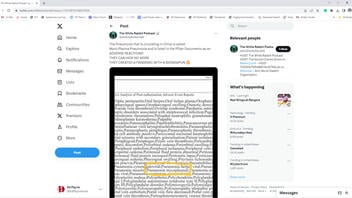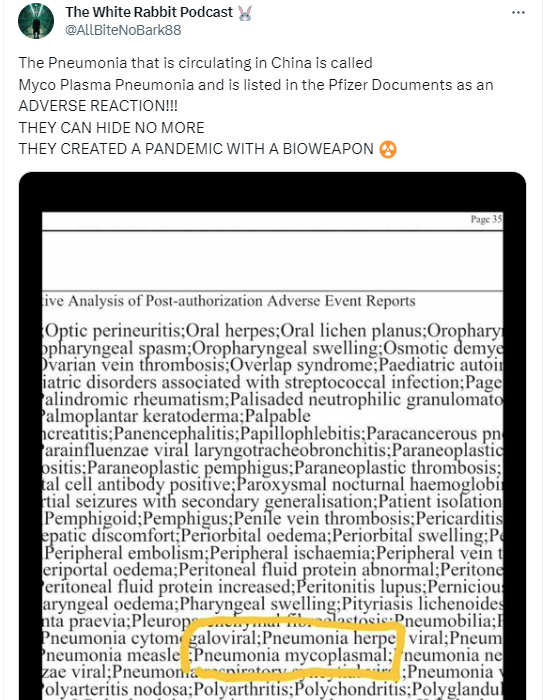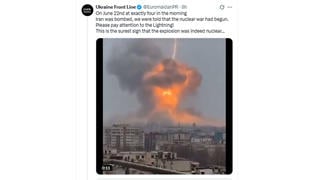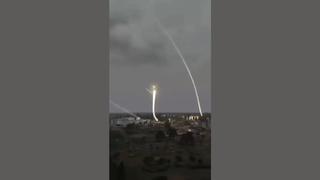
Does the listing of "Pneumonia mycoplasma" in Pfizer's guidance on adverse event reports associated with its COVID-19 vaccine prove that the shot caused a respiratory outbreak in China? No, that's not true: It's a fundamental misreading of standard vaccine documents, which direct doctors to rapidly report any problems from a long list as a precaution. The Centers for Disease Control and Prevention, along with the Food and Drug Administration, said its safety monitoring systems "have not established a causal relationship between mRNA vaccines (Pfizer and Moderna) and pneumonia." Adverse events are reported for safety checks, and just because they're listed doesn't automatically mean the vaccine has caused them.
The claim appeared in a post (archived here) published on X (formerly Twitter) by The White Rabbit Podcast 🐰 on November 30, 2023. The post's caption says:
The Pneumonia that is circulating in China is called Myco Plasma Pneumonia and is listed in the Pfizer Documents as an ADVERSE REACTION!!! THEY CAN HIDE NO MORE THEY CREATED A PANDEMIC WITH A BIOWEAPON ☢️
This is what the post looked like on X at the time of writing:
(Source: X screenshot taken on Thu Nov 30 15:15:13 2023 UTC)
Inclusion in this list does not mean that pneumonia mycoplasma had been observed following COVID vaccine administration, but rather that health care providers should report such an occurrence should it happen. Such precautions are part of the best practices in what is called "pharmacovigilance," the system by which drug developers consider all the effects of similar drugs and drug delivery systems and then instruct doctors in the field to rapidly report any similar effects should a pattern start to emerge.
The list shown in the post on X was taken from an April 2021 report published by Pfizer titled, "Cumulative Analysis of Post-authorization Adverse Event Reports." Pneumonia mycoplasma was included on page 36 of the appendix in a "list of adverse events of special interest."
Adverse events are defined as unexpected medical problems -- including symptoms or disease -- that happen during treatment with a drug or therapy. These often occur in clinical settings or trials, as well as soon after a drug is put on the market. Uncommon and rare adverse events associated with COVID mRNA vaccines include anaphylaxis or myocarditis.
Adverse reactions (also called side effects) are medically different than adverse events. Reactions refer to known symptoms that may follow a vaccine, such as a fever or headache, whereas events describe previously unknown or unexpected medical conditions that may occur after vaccination. Adverse reactions and adverse events are not interchangeable medical terms despite often being confused with one another.
An adverse reaction is defined as known undesired effects that occur when a medication is given regardless of dosage. Common adverse reactions associated with COVID mRNA vaccines include fever, fatigue and pain at the vaccine injection site.
Pneumonia mycoplasma
The disease, Pneumonia mycoplasma, is a type of lung infection caused by mycoplasma pneumoniae bacteria. The CDC's website provides this description:
Mycoplasma pneumoniae bacteria commonly cause mild infections of the respiratory system (the parts of the body involved in breathing). Sometimes these bacteria can cause more serious lung infections that require care in a hospital. Good hygiene is important to help decrease the spread of M. pneumoniae and other respiratory germs.
Respiratory outbreak in China
In a November 23, 2023, news release from the World Health Organization (WHO), the global public health agency stated that it has been monitoring data from Chinese surveillance systems, which have been showing an increase in respiratory illness among children in northern China. In part, it said:
Chinese authorities attributed this increase to lifting of COVID-19 restrictions and the arrival of the cold season, and due to circulating known pathogens such as influenza, Mycoplasma pneumoniae, respiratory syncytial virus (RSV), and severe acute respiratory syndrome coronavirus 2 (SARS-CoV-2). Mycoplasma pneumonia and RSV are known to affect children more than adults.
The alert from the WHO makes it clear that there are a variety of causes of the outbreak and mentions no link to the Pfizer COVID vaccine.
Centers for Disease Control and Prevention
Jasmine Reed, a public affairs specialist for the Centers for Disease Control and Prevention (CDC), provided the public health agency's response to the claim. In a November 30, 2023, email, the CDC said there's no proven cause and effect:
CDC and FDA are conducting the most comprehensive vaccine safety surveillance for COVID-19 vaccines in recent history. Safety monitoring to date in CDC's multiple complementary surveillance systems (VAERS, VSD, CISA, v-safe and v-safe Pregnancy Registry) has not established a causal relationship between mRNA vaccines (Pfizer and Moderna) and pneumonia.
Pfizer
In a November 30, 2023, email, Pfizer media relations provided the company's response to the social media claim. The vaccine maker said:
There is no evidence to suggest this claim.
Pfizer is deeply committed to the well-being of the patients it serves and is committed to the safety and effectiveness of its treatments and vaccines. Since its initial authorization by FDA in December 2020, the Pfizer-BioNTech COVID-19 vaccine has been administered to more than 1.5 billion people, demonstrated a favorable safety profile in all age groups, and helped protect against severe COVID-19 outcomes, including hospitalization and death.
Read more
Additional Lead Stories fact checks of claims about COVID-19 vaccines can be found here.















